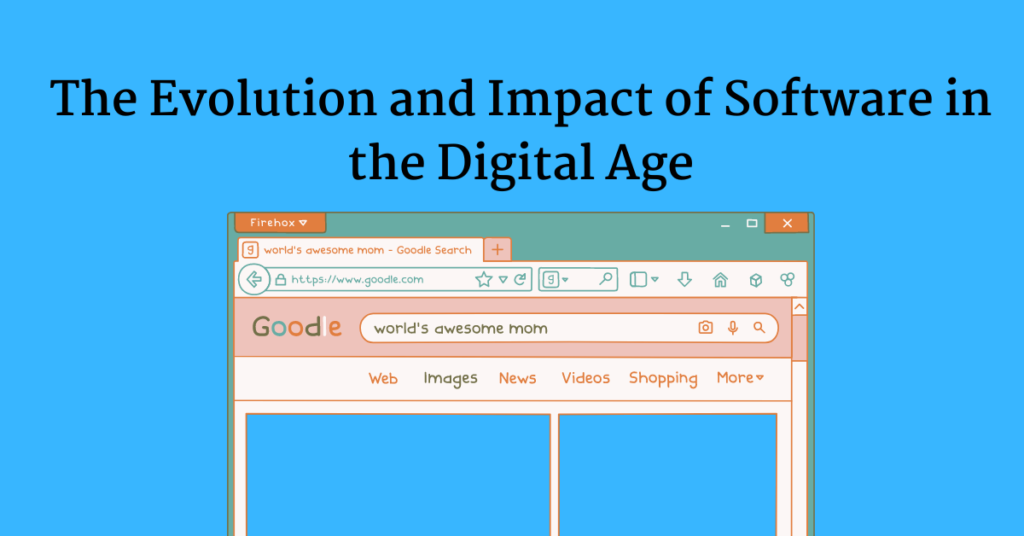In today’s digital age, software is indispensable in almost every aspect of our lives. From the applications on our smartphones to the complex systems that power industries, software has become the foundation of modern civilization. This article looks at the evolution of software, its various forms, and its profound impact on society.
The Dawn of Software
The history of software can be traced back to the mid-20th century when the first electronic computers were developed. Initially, software was rudimentary and primarily consisted of low-level programming languages that were difficult to understand and manipulate. However, as computing technology advanced, so did software.

Evolution of Programming Languages
Over the decades, programming languages have evolved to become more powerful, efficient, and accessible. From early languages like Assembly and Fortran to modern languages such as Python, Java, and JavaScript, each iteration has brought new capabilities and possibilities. These languages have enabled developers to create a wide range of applications, from simple utilities to complex enterprise systems.
Diverse Forms of Software
Software comes in various forms, catering to different needs and purposes. Operating systems like Windows, macOS, and Linux form the foundation of computing devices, providing essential functionalities and managing hardware resources. Applications, ranging from productivity tools like Microsoft Office to entertainment platforms like Netflix, enhance our daily lives and leisure activities. Additionally, specialized software powers critical systems in sectors such as healthcare, finance, and transportation, ensuring efficiency, accuracy, and safety.
Impact on Society
The impact of software on society cannot be overstated. It has revolutionized how we communicate, work, learn, and entertain ourselves. Social media platforms connect people across the globe, facilitating the exchange of ideas and information. E-commerce platforms have transformed the way we shop, making it more convenient and accessible. Educational software has opened new avenues for learning, enabling remote education and personalized learning experiences. Navigating the Complexities of Car Accidents: Why You Need a Car Accident Lawyer
In business, software has emerged as a key driver of innovation and competitiveness. Companies use software to streamline operations, analyze data, and better engage with their customers. From automated manufacturing processes to predictive finance analytics, software solutions are reshaping industries and driving economic growth. Keeping Unwanted Guests at Bay: The Importance of Professional Pest Control
Challenges and Opportunities
Despite its numerous benefits, software also has drawbacks, such as security flaws, privacy concerns, and digital divides. Cybersecurity threats are constantly evolving, posing risks to individuals, organizations, and even nations. Furthermore, the rapid pace of technological advancement can exacerbate inequalities, leaving behind those who do not have access to digital resources or skills.
Looking Ahead
As we look forward, software will continue to evolve and shape the world around us. Emerging technologies like artificial intelligence, blockchain, and the Internet of Things have the potential to further transform industries and human experiences. Furthermore, the democratization of software development tools and platforms will allow individuals and communities to devise their own solutions to pressing issues.
However, these challenges provide opportunities for innovation and collaboration. The growing emphasis on cybersecurity has prompted the creation of sophisticated defense mechanisms and practices. Efforts to bridge the digital divide, such as initiatives to provide internet access to underserved communities, offer the prospect of a more inclusive digital future.
In conclusion, software has become a critical enabler of progress and innovation in the digital age. Its evolution has altered the way we live, work, and interact with the world. We can create a more equitable and prosperous future for all by realizing its full potential and addressing its challenges.